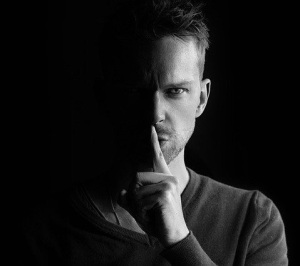ROCD
Although ROCD is often characterized by intrusive worries about your relationship, relationship OCD treatment often specifically targets the compulsions and avoidance behaviors related to ROCD (rather than the obsessions themselves).
This is because ROCD treatment is based on the premise that compulsions and avoidance behaviors are what strengthen and maintain the condition. In the absence of rituals and avoidance, relationship OCD symptoms tend to diminish and weaken over time.
This general principle is true for all types of OCD, not just ROCD.
As a quick refresher, this multi-part series of posts on rOCD (aka “relationship OCD”) discusses obsessive thoughts that are common in rOCD, ROCD intrusive impulses and images, ROCD compulsions and avoidance behaviors [THIS PART!], and ROCD in non-romantic relationships [FORTHCOMING!]. Let’s get to it.
What are common ROCD compulsions?
ROCD (Relationship OCD) & Compulsions/Avoidance Behaviors
Compulsions are the behavioral and/or mental strategies that individuals with ROCD use to reduce the distress brought on by their obsessions. Avoidance behaviors are also common to relationship OCD and are frequently used to avoid thinking about relationship-related doubts.
Compulsions About Being with the “Right Person”
- Confessing doubts to your partner.
- Getting excessive reassurance from your partner.
- Seeking excessive advice from other people about how to proceed in your relationship.
- Getting reassurance from others that you’re in the “right” relationship.
- Avoiding dates and other activities with your partner.
- Avoiding intimacy with your partner.
- Checking your body for signs of arousal (e.g., groinal responses, etc.) when around your partner vs. when you’re around other people.
- Analyzing and trying to determine if you are sexually attracted to strangers.
- Comparing your current relationship to past relationships or to idealized relationships.
- Excessively analyzing or reviewing the pros and cons associated with your current relationship.
- Avoidance of places, activities, or situations that remind you of previous partners.
- Avoiding movies or TV shows that depict couples.
- Avoiding friends or family members who might talk about their own relationships or ask about your relationship.
- “Obsessively” analyzing future events that could produce challenges for the relationship.
These checking rituals are often based around the premise that if one is in the “right relationship,” one shouldn’t experience any doubts about their relationship or their partner. Individuals with these types of OCD checking rituals compare current relationships to past relationships or to potential idealized future relationships.
I love my boyfriend, but I can’t shake this nagging feeling that he’s not “the one.” He’s a wonderful guy, and he clearly would do anything for me. This makes me feel so guilty sometimes. I do love him, but I keep questioning the relationship. Surely, if I truly loved him, I wouldn’t be having these doubts. I don’t want to deceive him about where I’m at, so I keep telling him about my doubts. He says that it’s okay and that he understands, and that he knows that I love him.
Lately, I’ve found that I’m constantly confessing things to him. If I see an attractive guy, I tell him. If I think about my ex, I tell him. Honestly, all my confessing is getting out of control. It used to happen just once in a while, but it’s happening all the time now. We rarely go out on dates anymore, because the whole time we’re out, I’m confessing a thought I’ve had. I don’t know why my boyfriend hasn’t broken up with me. I really do love him (I think!), but this can’t be normal.
-Julia
Rituals About Your Partner Cheating
- Monitoring your partner’s real-life or online activities.
- Checking your partner’s receipts or credit card statements.
- Checking your partner’s Facebook page and monitoring status updates by their friends.
- Checking your partner’s emails, voicemails, or text messages.
- Monitoring pictures of your partner on Facebook to see if anyone makes inappropriate comments.
- Checking or monitoring your partner’s verbal or non-verbal behavior around other people.
- Excessively questioning one’s partner about their feelings about their relationship.
- Excessive reassurance seeking about their partner’s faithfulness.
- Excessive questioning of their partner about their whereabouts or intentions.
- Avoiding movies or TV shows that depict infidelity.
- Checking your partner’s pockets, credit card statements, or receipts.
- Asking your partner excessive questions about previous relationships or sexual experiences.
- Checking your partner’s clothing for evidence of cheating (e.g., looking for traces of smeared lipstick, make-up, excessive wrinkles, etc.)
- Checking your partner for unfamiliar smells (e.g., perfume, cologne, body wash, etc.) or t
These compulsions often involve looking for evidence that your partner is being unfaithful. Doubts can persist even in the absence of any true evidence.
I’ve been married for 2 years. My wife is a wonderful, loyal person, but I get this nagging feeling that she might be cheating on me. I’ve confronted her about it, but she denies it. She seems to be sincere. I want to believe her (and part of me really does), but I just can’t get rid of these doubts.
I’ve begun doing some things I’m not proud of. After she goes to bed, I often sneak downstairs and check her text messages to make sure that she’s not texting another guy. I also monitor her facebook and instagram accounts. I haven’t found anything terribly incriminating yet, but she’s smart, so she could simply be deleting the evidence. When we’re together, she sometimes receives texts from other people. If she smiles or laughs when reading them, I immediately become enraged and convinced that they’re from another guy. She always shows me the messages, and then I realize I’m just being paranoid. She’s been nothing but forthcoming whenever I’ve asked about something, but her patience with me is starting to wear thin, and she’s getting more and more upset that I can’t seem to trust her.
A large part of me knows she’d never cheat, but how come I can’t shake these doubts? These doubts must mean something, right?
-Peter
ROCD Treatment
Sometimes the only way to live a good life is to learn to accept and co-exist with life’s imperfections. Most individuals understand this logically, but it’s often easier said than done. Recovery from ROCD involves challenging black-and-white thinking and recognizing that good can be good enough, even for important things like our relationships. Recovery is also based on a willingness to accept uncertainty and compromise.
Is there a “better” person out there?
Absolutely. This is a certainty.
There are billions of people in the world, and our lives tend to run in tight circles. There is always someone better out there for everyone. No one ever finds their #1 perfect person. At some point, we all choose to accept imperfections (however large or small) and love the person we love, ending our search.
Imperfect ≠ “Not Enough”
(Imperfect isn’t the same thing as “not enough.”)
These concepts are often incorporated into ROCD treatment, in combination with exposure and response prevention (ERP) and all the usual suspects. ERP for ROCD involves exposure to doubt-inducing triggers, while simultaneously refraining from all mental and behavioral compulsions. Consistent, repeated practice can dramatically reduce symptoms of ROCD.
Interested in ROCD treatment in Florida? Look no further than my South Florida OCD treatment center or call the phone number at the top of this page.
Questions? Comments? What ROCD compulsion do you fall into the most? Which ROCD compulsions and avoidance behaviors did I forget? Sound off below…
Want Updates about New Content?
Follow Me!
Follow @drstevenseay













Is it possible to have Panic attacks everytime I wake up in the morning because of rocd? Thinking about my boyfriend makes me feel anxious and it lasts 8 months now. I am dreaming about going back to normal. It Was so good before it hit me in december… please,help. 🙁
Hi J,
Yes it’s possible. I had panic attacks every morning for weeks, and anxiety about relationships with avoidance. I’ve had moments when I’ve cried also feeling like I want to go back to normal. You can get help and it will get better. Talking to a psychiatrist could be really helpful for you.
Wishing you the best
S
Hi Steven! I would love to hear about relationship OCD in non-romantic relationships. You referenced it but I don’t see a post about it! Thank you!
Ich denke momentan ich liebe eig meinen Exfreund, dass das meine Wahrheit ist wobei ich ihn seit 2 Jahren nur auf Instagram sehe und mich so oft total verliebt bei meinem jetzigen Freund gefühlt habe..
Dr. Steven Seay,
I have been struggling with ROCD for a while, but I feel like mine is a bit different. My obsessions have to do with not experiencing the college life when I was in college due to dating my boyfriend who is now my husband. I have a constant fear that I missed out and that I have to leave my husband in order to go find myself. I don’t want to leave him, I love him so much. I am 33 years of age and I keep having thoughts and feelings about what I would do if I was young again and going away to college. I feel like I would leave my husband. Thinking this breaks my heart because then I feel like this means that I have to leave him. I don’t want to leave him. I get intrusive thoughts about running away and leaving him behind. I feel if I don’t do this I will be miserable for the rest of my life. It is constant rumination and I spend hours online reading stories about people that left their spouses to go find themselves and stories about high-school couples that decide to break up so they can have the full college experience.
It sounds like you’re continuing to get caught up in mental rituals. For individuals with ROCD, symptoms will continue to intensify as long as you’re engaging in these rituals. It sounds like it would be important to work on accepting uncertainty about the possibility of “having missed out” on particular experiences. Some of this might be addressed through scripting and imaginal exposure. It would also be important to come to terms with your uncertainty about the future. Reading online stories (as you have been) sounds like it has been a compulsion (if you’re using them to figure out what you should do). Instead, there might be ways to use them strategically for exposure purposes…however, it might work best to have an OCD therapist guide you on how to implement these activities in a non-compulsive way.
Steven, I’m glad to have come across your web page. rOCD is absolutely destroying my life. It has created doubts about my girlfriend’s fidelity despite her putting forth the maximum effort. She was recently widowed when we came across each other on an internet site, and we simply befriended each other at first. We did not know the appearance of the other until we moved over to Facebook later, and the sparks flew instantly. We carried on in a long-distance relationship for 5 months before meeting, and finally moving in together after 8 months total. During those 5 months I monitored her online activity (still do), payed close attention to all males commenting/liking her posts, and checked to see her online status constantly. While on calls with her, I would hear the dreaded “Messenger Ping” and ask her to send me a screen of who just sent that message. It nearly always checked out and I was pacified for the moment. She had quite the following of males on her page who were quick to leave comments (some harmless and others bordering explicit). If I saw some of the comments were out of line, she would unfriend or block them. We clashed HARD over what was appropriate and inappropriate in terms of boundaries with the opposite sex. I’m a Christian guy who believes in minimal contact with the opposite sex in order to safeguard a committed relationship. I don’t believe that married/committed folks should be messaging, eating out with, or engaging the opposite gender unless absolutely necessary. I’m fine with a few close friends of hers that are in committed relationships themselves, who exhibit respectful behavior towards us messaging her. Basically, if her interactions with males are transparent I’m fine. She spent over $20,000 dollars to make the move to get to me from across the world, and then across the country. She has paid for a few unsuccessful counseling sessions for us to get over the issue (with the therapist giving up and referring me to an OCD Specialist). My girlfriend has shipped her stuff to my place and is clearly settling in for the long haul…but to my OCD, it’s meaningless. Inside I KNOW she isn’t doing anything wrong. At one point she got fed up, unlocked all her electronics, and had me go through anything I wanted after I told her that “A locked phone is a sign of hiding something”. I found ZERO. We now share each other’s pass codes to which I don’t go through any of them. Oddly enough, just knowing I can is enough. The fact that she had so many guys on her FB page did a number on me, though. She is fully aware of my compulsions and is trying her best to hang on through the questioning, because when there are periods of tranquility, it can produce some of the most beautiful moments we have both experienced. The relationship is moving forward due to her belief that I can get better, and I’m doing my best to hang on. rOCD seems to be a concept that not many are equipped to handle. Thanks for reading.